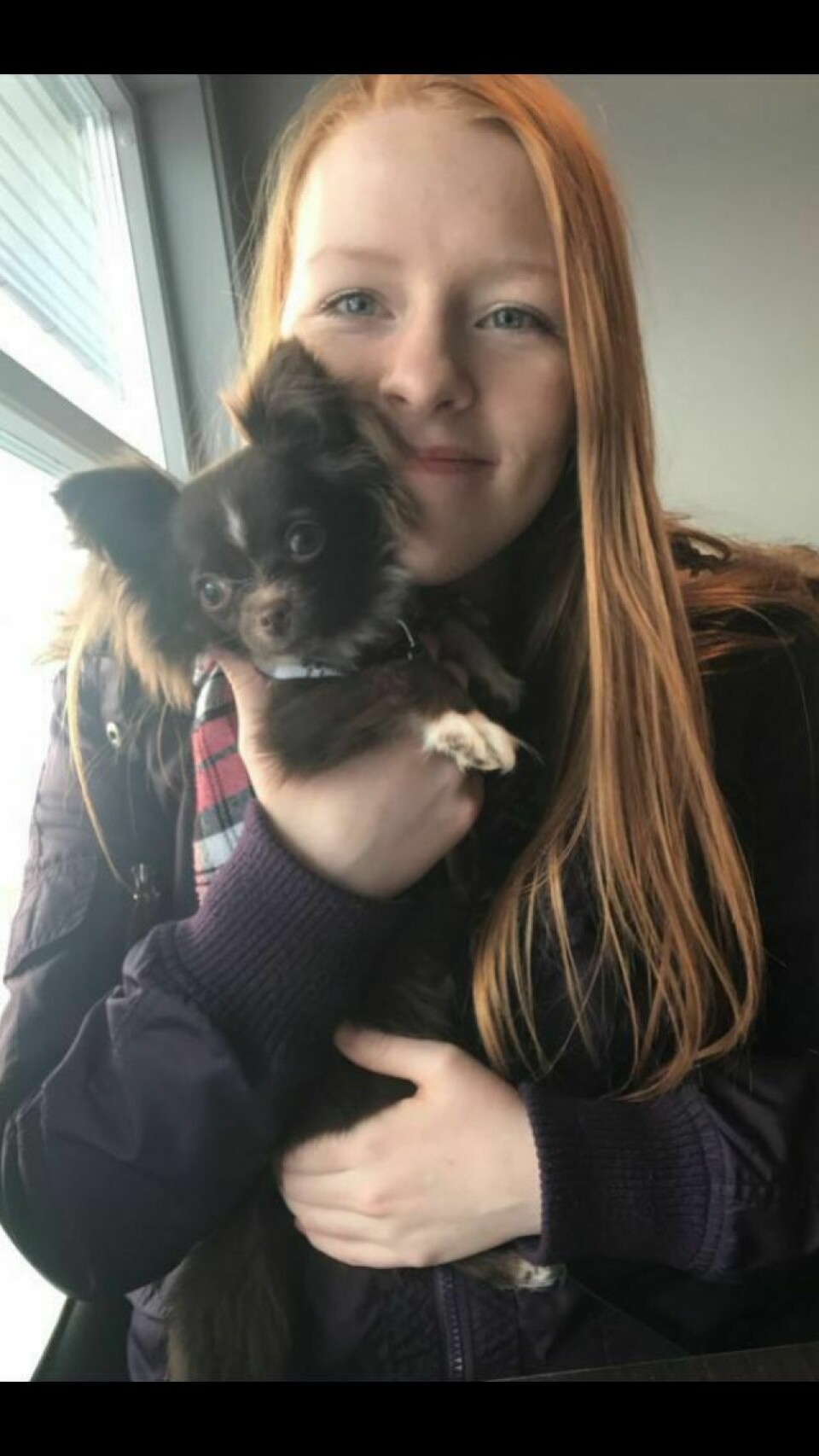Lucas had to return to Svalbard in quarantine
A vacation to Svalbard ended sadly for Elisa Jensen as she had to return home without her nine-month-old dog Lucas.
Alona Kulyk
Lucas normally lives in Vardø with her owner Elisa Jensen. During Easter they visited Elisa's father, Arnt Vegar Jensen, and his family that lives in Longyearbyen. Elisa brought Lucas to a veterinarian several times. He received a rabies vaccine and apparent authorization to travel. Elisa and her father thought everything was in order.
"We got a shock when the dog was stopped," Elisa said. "It turned out that we should have applied for permission from the Norwegian Food Safety Authority and a blood sample of the dog should have been taken. I did not assume that the Food Safety Authority had to be involved to bring the dog here. The veterinarian should have checked better."
Being stopped
When Elisa and Lucas were traveling home again after the holiday, the dog's authorization was checked when they arrived at Gardermoen Airport. It turned out not everything was in order and the dog could not be let into mainland Norway. A veterinarian was called and took custody of the dog.
"I was very upset and a little angry.," Elisa said on her way home to Vardø without Lucas. "Then I called my father and aunt."
The little chihuahua weighing one-and-a-half kilograms was given a 90-day quarantine. The choice was to leave the dog in a quarantine kennel in Oslo or return it to Svalbard.
"I understand that responsibility lies with us, but Elisa has acted in good faith," says Arnt Jensen.
He told the story in a post on his Facebook page asking the dog be returned to Svalbard. The dog had to receive emergency approval from the Norwegian Food Safety Authority for that to happen.
"There were many who signed up to help and pick him up," Arnt Jensen said.
That made the Easter holiday extra special for the family.
"Getting Lucas back to Longyearbyen is better than sitting alone in a cage down there," Arnt Jensen said. "This is costing many thousands of kroner, but the most important thing is that we get to keep the dog."
First time
Astrid Vaag Vikaune, a veterinarian in Longyearbyen, said to her knowledge this is the first such incident.
"What is special in this case is that it was not checked when it came to Svalbard," she said. "All dogs coming here must be checked by Widerøe Ground Handling. That did not happen this time. This dog has been under the radar. There's not a good enough system for small dogs traveling in the cabin."
If the lack of approval by the Norwegian Food Safety Authority had been discovered at the airport, the dog could have been brought straight to the veterinarian and arrangements would have been possible.
There was also a misunderstanding when another dog came here at Easter. It lacked an ectoparasite treatment vaccine and was taken straight to the vet.
"That was in order for this dog," Vikaune said. "This shows once again that there is a need for a local veterinary service here."
Responsibility is with the owner
Sølvi Jakobsen, product manager at Widerøe Ground Handling in Longyearbyen, said the person traveling with a dog is responsible for meeting the regulatory requirements.
"Anyone traveling with a dog should contact us without delay," she said. "The information is provided by the Norwegian Food Safety Authority and it is also on the governor's website. Generally, this works out well."
An official at Norwegian Food Safety Authority said the agency isn't familiar with this particular case, but generally speaking most travelling animals are in compliance with regulations.
"Generally people are good at following the regulations," said Anja Lindegård, a senior inspector for the agency's Troms and Svalbard offices. "It is clear that when illegal acts occur they must have consequences. It is very important that vaccines and everything is in order. There is a greater risk of rabies in Svalbard."
The default assumption is an animal is not allowed to travel to Svalbard.
"The animal's owner has the complete responsibility for following the rules that apply," Lindegård said.
Sad
Arnt Jensen said the entire situation is sad. The dog is only nine months old and was with her daughter every day since she received him.
"Clearly, it is a dramatic experience when he's taken from her in this way," he said.
Julie Jensen, Elisa's older sister, joined their father to greet Lucas on Wednesday.
Elisa said she plans to visit Lucas during his 90-day quarantine in Svalbard.

